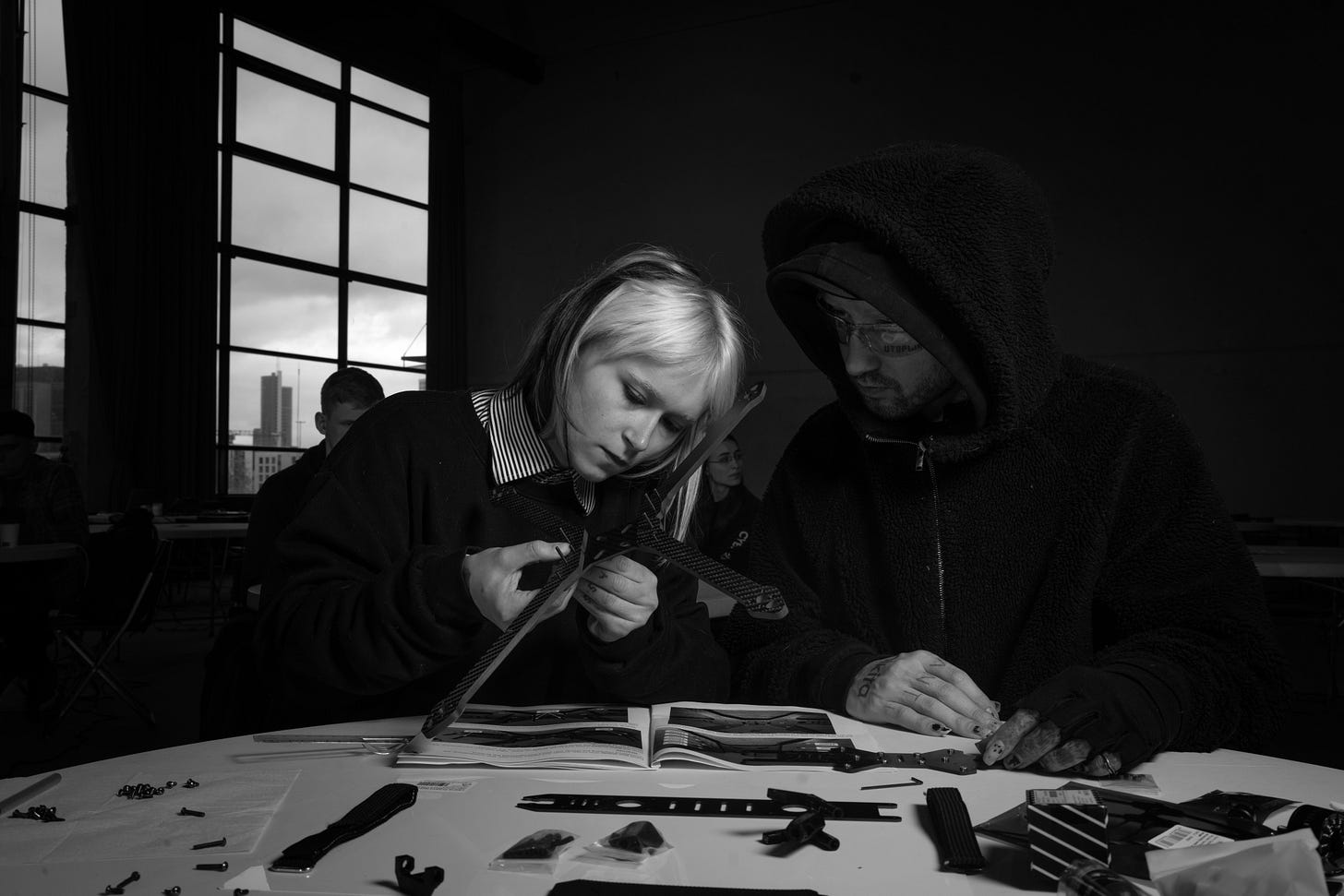Dispatches from European Defense Tech Hackathon Vilnius
EDTH’s hackathon during the Baltic Miltech Summit consolidated its positioning as a hub helping projects progress along the defence funnel
EDTH, the European Defense Tech Hub, is on a roll, with so many hackathons that you wouldn’t be blamed if you lost track. But that would be a shame, as they remain as interesting as when they started, if not more.
One reason is that the team behind EDTH is increasingly embracing that the letter H stands for “hub,” not “hackathon.” This means working not only towards bringing talent into the defence pipeline, but also helping these projects become startups that can successfully navigate procurement to bring their innovations where they are most sorely needed.
One of EDTH’s latest hackathons was organised in partnership with the Baltic Miltech Summit. It therefore took place on weekdays, in the relatively small city of Vilnius, which resulted in a slightly lower turnout than at previous editions — which could also be the new normal for EDTH as its events become more frequent.
Still, no fewer than 17 teams worked on challenges launched by third parties including key partner Quantum Systems, the German drone maker that just raised a €160 million funding round, as well as their own ideas.
Out of these, seven projects were shortlisted to present in front of a jury at the Baltic Miltech Summit, and a top three was established — a novelty for EDTH, but one that came with perks for the winners. All of them were awarded free tickets to the next edition Startup Fair, Lithuania’s main international startup ecosystem event.
Surprise prizes aside, the hackathon was a unique shortcut for civilians like former data scientist Mitchell Schwartz.
“It is fantastic that people like myself are brought from other industries into defence,” this participant told Resilience Media. “This is an opportunity for people like myself to come directly into it, and interact with people that are working with the Lithuanian military and the Ukrainian military to get involved.”
Schwartz was part of the team that worked on an AI-enabled drone detection and tracking system. Quick execution won them the first place, as well as fast track entry into Startup Fair’s pitch competition. “Within 24 hours, they built a drone simulation, trained a detection model from scratch, developed a position-estimation algorithm, and visualised the results in a working frontend,” the jury highlighted.
The second place went to Odile Vision, which is developing wargaming software to make this practice more scalable. The third went to Luna Robotics, whose night vision cameras don’t rely on Chinese components, but match their price, while also delivering better image quality.
Although still incipient, both Luna Robotics and fellow finalist Unbound Autonomy have already taken shape as startups, and were presenting alongside more seasoned homegrown companies such as RSI Europe in the Lithuanian Defence Tech Exhibition organised by Lithuanian VC funds.
Lithuanian investors are certainly keen on Unbound Autonomy and its AI-powered wearable for soldiers. The young team already received support from ScaleWolf and Plug and Play’s Startup Lithuania Accelerator, and now won a special award by business angel network LitBAN to pitch for investment.
While it has received plenty of backing at home, Unbound Autonomy arguably wouldn’t be where it is without EDTH’s inaugural Munich hackathon last June. Its CEO, Vytautas Mikalainis, explained that he entered the hackathon with a different idea — an AI assistant for soldiers — but based on feedback, pivoted to the idea Unbound Autonomy has been working on since.
During the hackathon, Mikalainis and his co-founder integrated low-power, long-range network protocol LoRa into their device, enabling reliable communication over extended distances. This advancement helped convince the jury, which wanted to ensure that returning teams demonstrated significant progress during the event and were not unfairly advantaged.
It turned out not to be a concern; for instance, the Luna Robotics team “implemented an object detection model capable of identifying threats directly from the camera feed, enabling the detection of camouflaged enemy assets at night.” Another preexisting project, StratOS, made it to the finals after developing multiple new scenarios for its tactical drone simulator during the hackathon.
As long as fairness is respected, it is a plus that teams are returning to these hackathons; and another sign that EDTH is going beyond the top of the funnel and helping founders move further into their journey. That’s also the case for other players in the defence hackathon space: DarkStar does hackathons, meetups and bootcamps, but is also a fund.
EDTH’s roadmap still revolves around hackathons, including one that they will run during London Defence Tech Week. But its co-founders Benjamin Wolba and Jonatan Luther-Bergquist are also planning a Hack Week that will bring top projects from previous hackathons with procurement agencies and investors, another step towards helping them make a real impact.



